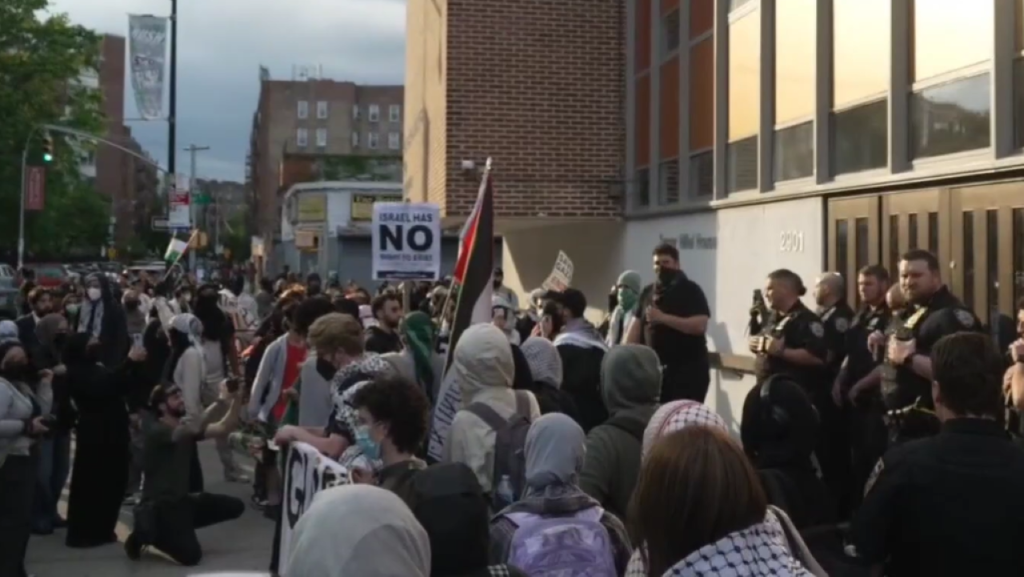In recent weeks, tensions have escalated on various college campuses across the United States, particularly concerning attitudes towards Israel and Palestine. Reports indicate that significant protests have erupted, culminating in disruptions and confrontations between different student groups. These events raise profound questions about academic freedom, freedom of speech, and the role of universities in political discourse. As the conversation surrounding these complex issues unfolds, it is crucial to consider the implications for both students and the institutions they represent.
| Article Subheadings |
|---|
| 1) Background of the Protests |
| 2) The Events Unfolded |
| 3) Responses from University Officials |
| 4) Perspective of the Students Involved |
| 5) Potential Consequences for Campus Culture |
Background of the Protests
The recent wave of protests stems from a complex web of geopolitical tensions that date back decades. The ongoing Israeli-Palestinian conflict has been a flashpoint for social justice movements around the globe, and U.S. college campuses are no exception. Students who advocate for Palestinian rights have expressed frustration over their universities’ perceived complicity in endorsing policies they view as oppressive. The resulting clashes often involve strong demonstrations from both pro-Israel and pro-Palestine factions, with each side passionately defending their positions. These conflicts highlight a significant shift in activist strategies on campuses, where younger generations are increasingly vocal about international issues.
The Events Unfolded
In one notable incident at a major university, a pro-Palestinian group organized a rally calling for an end to military aid to Israel. As the event unfolded, a counter-protest by pro-Israel students emerged, leading to a heated exchange of slogans and confrontational chants. The atmosphere quickly escalated, resulting in physical confrontations that disrupted classes and drew faculty and administrative intervention. This scenario has played out multiple times in different forms across campuses, showcasing the high stakes involved while simultaneously raising alarms over student safety and campus stability.
Responses from University Officials
In response to the unrest, university officials have been placed in a challenging position. Many administrators publicly condemn violence and call for peaceful discourse, emphasizing the need for dialogue between opposing sides. Some have issued statements reaffirming their commitment to free speech while simultaneously acknowledging the emotional and psychological toll these events may have on their student bodies. Nevertheless, how universities respond to these protests can affect their reputations, influencing both enrollment and donor support. The delicate balancing act these institutions must perform is indicative of a larger societal debate about academic freedom, civic responsibility, and institutional neutrality.
Perspective of the Students Involved
Students on both sides of the protests offer a mix of passionate beliefs and personal stories that fuel their activism. For pro-Palestinian advocates, the issues go beyond academia; they reflect urgent human rights concerns and a call to action against what they view as systemic oppression. Conversely, pro-Israel supporters underline their connection to cultural identity, emphasizing that their fight is also rooted in the need for safety and self-determination. In many cases, these students have formed alliances with various campus groups, effectively broadening the scope of the protests to include others who are passionate about social justice, thus amplifying their messages.
Potential Consequences for Campus Culture
The ramifications of these divisive protests extend well beyond individual incidents, potentially reshaping campus culture for years to come. As these clashes become more prevalent, universities may face increased scrutiny over their handling of political expressions. The risk of hostility may discourage students from engaging in open discussions about sensitive topics, creating an environment stifled by fear of backlash. Moreover, alumni and donor reactions, both positive and negative, could significantly impact funding and resources available to universities, affecting other programs and initiatives.
| No. | Key Points |
|---|---|
| 1 | Protests on college campuses reflect deep divisions over the Israeli-Palestinian conflict. |
| 2 | Clashes between pro-Palestinian and pro-Israel student groups have escalated tensions. |
| 3 | University officials are challenged by the need to maintain free speech while ensuring safety. |
| 4 | Student perspectives reveal personal motivations behind their advocacy and activism. |
| 5 | The outcome of these protests could significantly influence future campus culture and discourse. |
Summary
As protests continue to arise on college campuses fueled by the Israeli-Palestinian conflict, the implications for students, universities, and broader society remain significant. Balancing activism with safety and free speech is crucial for educational institutions striving to foster open discourse. The reactions to these events will likely shape the future landscape of university politics, academic freedom, and community engagement.
Frequently Asked Questions
Question: What has led to the recent campus protests regarding Israel and Palestine?
The protests are motivated by deep-seated frustrations over perceived injustices in the Israeli-Palestinian conflict, drawing students to advocate for their respective positions.
Question: How are universities responding to these protests?
University officials have been attempting to navigate a challenging landscape, promoting dialogue while condemning violence and ensuring student safety.
Question: What are the potential outcomes of these protests for campus culture?
The protests may reshape how universities handle free speech and political expression, affecting student engagement and institutional policies moving forward.



